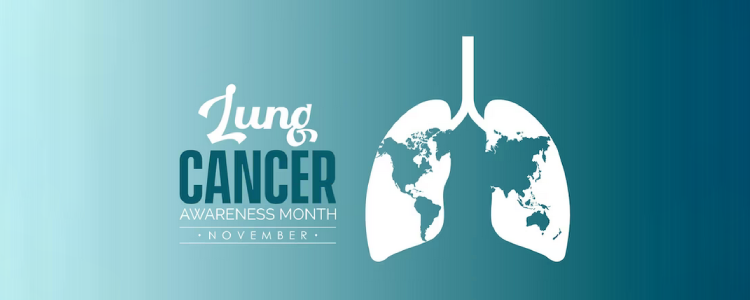Lung Cancer

Lung cancer is the leading cause of cancer - related mortality and its incidence is highly correlated with history of cigarette smoking. Patients with suspicious symptoms or an incidental finding on chest imaging especially in smokers require further evaluation.
The pathogenesis of lung cancer involves the accumulation of multiple molecular abnormalities over a long period of time. Apart from active smoking, passive smoking, environmental exposure to occupational lung carcinogens, radiation exposure are other risk factors for lung cancer. Air pollution is also a concern as a risk factor for lung cancer. In addition to hereditary factors, increased susceptibility to lung cancer may result from underlying fibrotic lung diseases.
Lung cancer screening is advised in those patients in whom it is indicated. The symptoms of lung cancer can be nonspecific. Presenting Symptoms of lung cancer can be chronic cough, weight loss, breathlessness, hemoptysis, Chest pain and hoarseness of voice etc.
Patients can also have clinical manifestations of extrathoracic disease and paraneoplastic syndrome. Whenever lung cancer is a possibility, then further investigations are warranted.
The major goals of the initial evaluation of a patient with suspected lung cancer include diagnosis of lung cancer by tissue sampling, staging of disease, specific histological subtyping, evaluation for the presence of comorbidities, complications of lung cancer and paraneoplastic syndromes. Evaluation include clinical & laboratory evaluation and appropriate radiological imaging.
Treatment of lung cancer include risk factor modification, chemotherapy, radiotherapy, surgery, targeted therapy or a combination of these modalities in addition to other supportive measures. Other prevention measures include healthy diet choices and maintaining a physically active lifestyle, smoking cessation advice and avoidance of environmental risk factors. Lung cancer has attracted worldwide attention now.
Living with lung cancer can be physically and emotionally challenging and these patients require comprehensive supportive care including pain management, nutritional counselling and psychological support. Lung cancer screening and early diagnosis is paramount important.